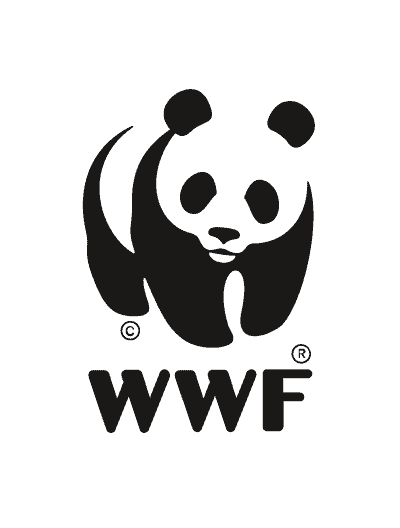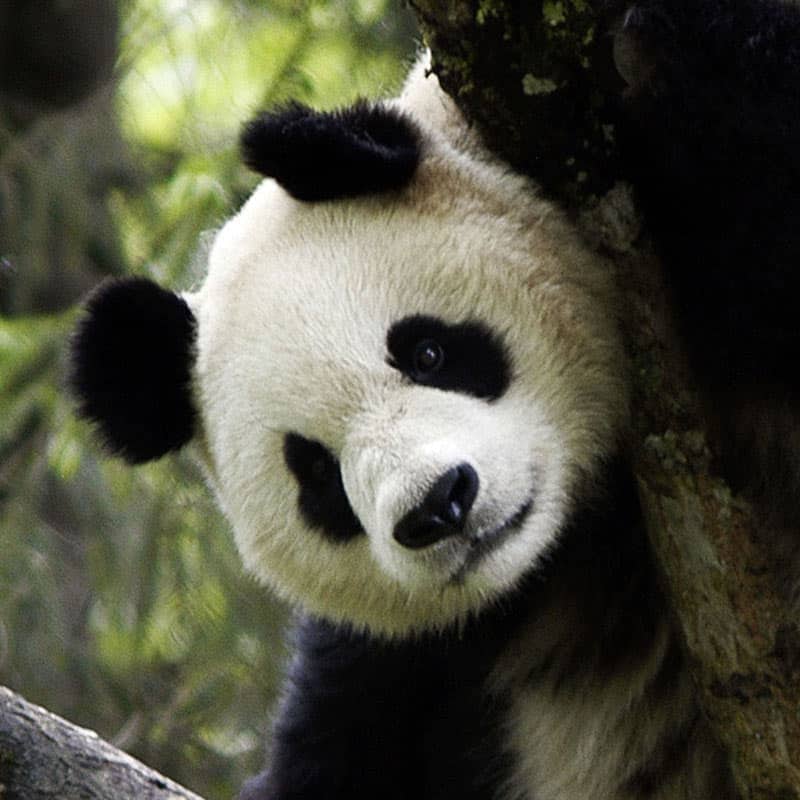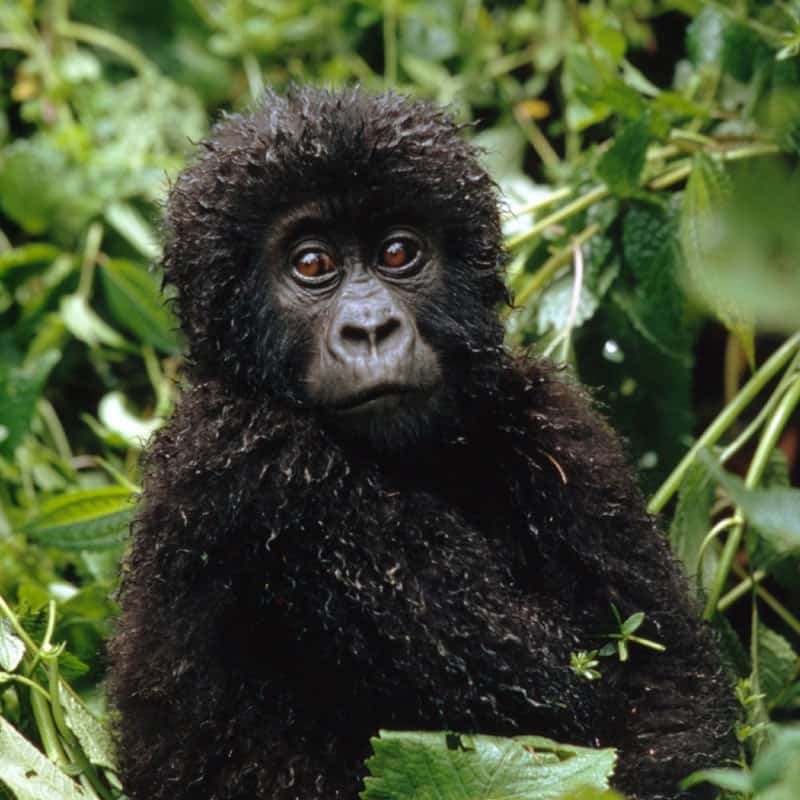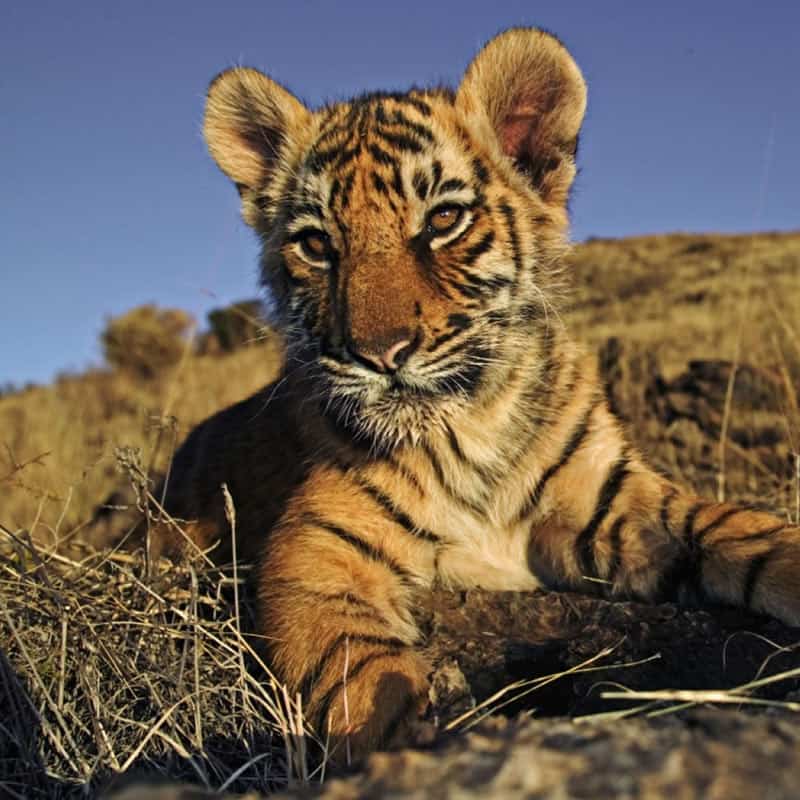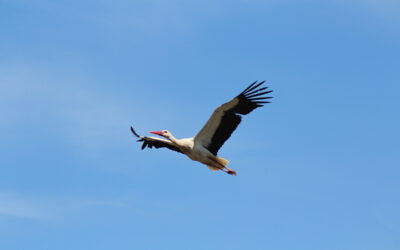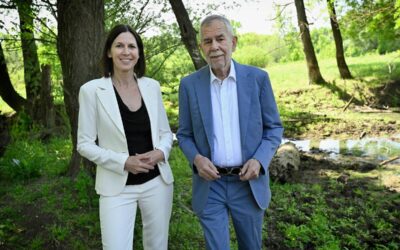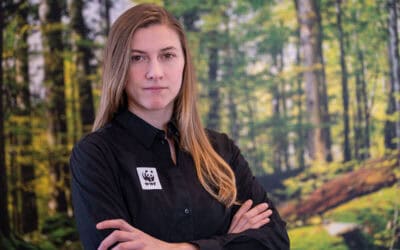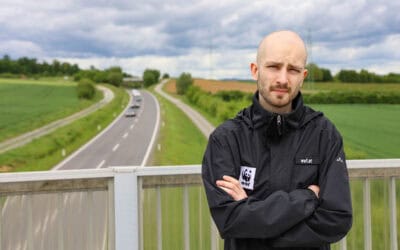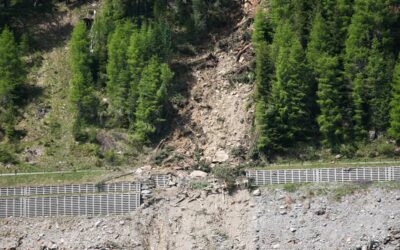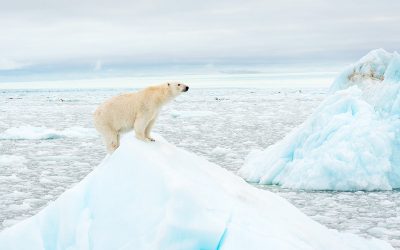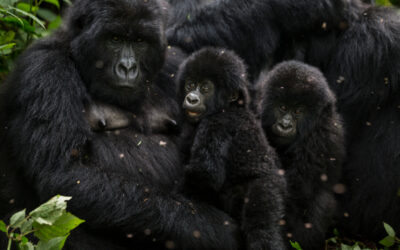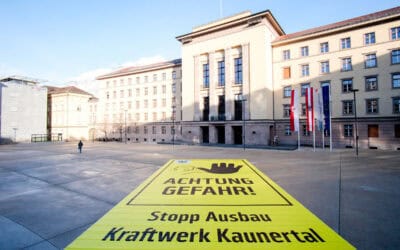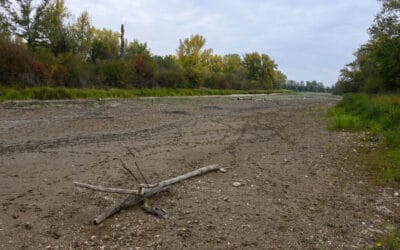Im WWF-Reservat hat die Storchen-Saison begonnen – 2025 gutes Jahr für den Storchen-Bestand – Weitere Rückkehrer werden in den kommenden Wochen erwartet
WWF: "Riverwatcher" schützen den Amazonas Europas
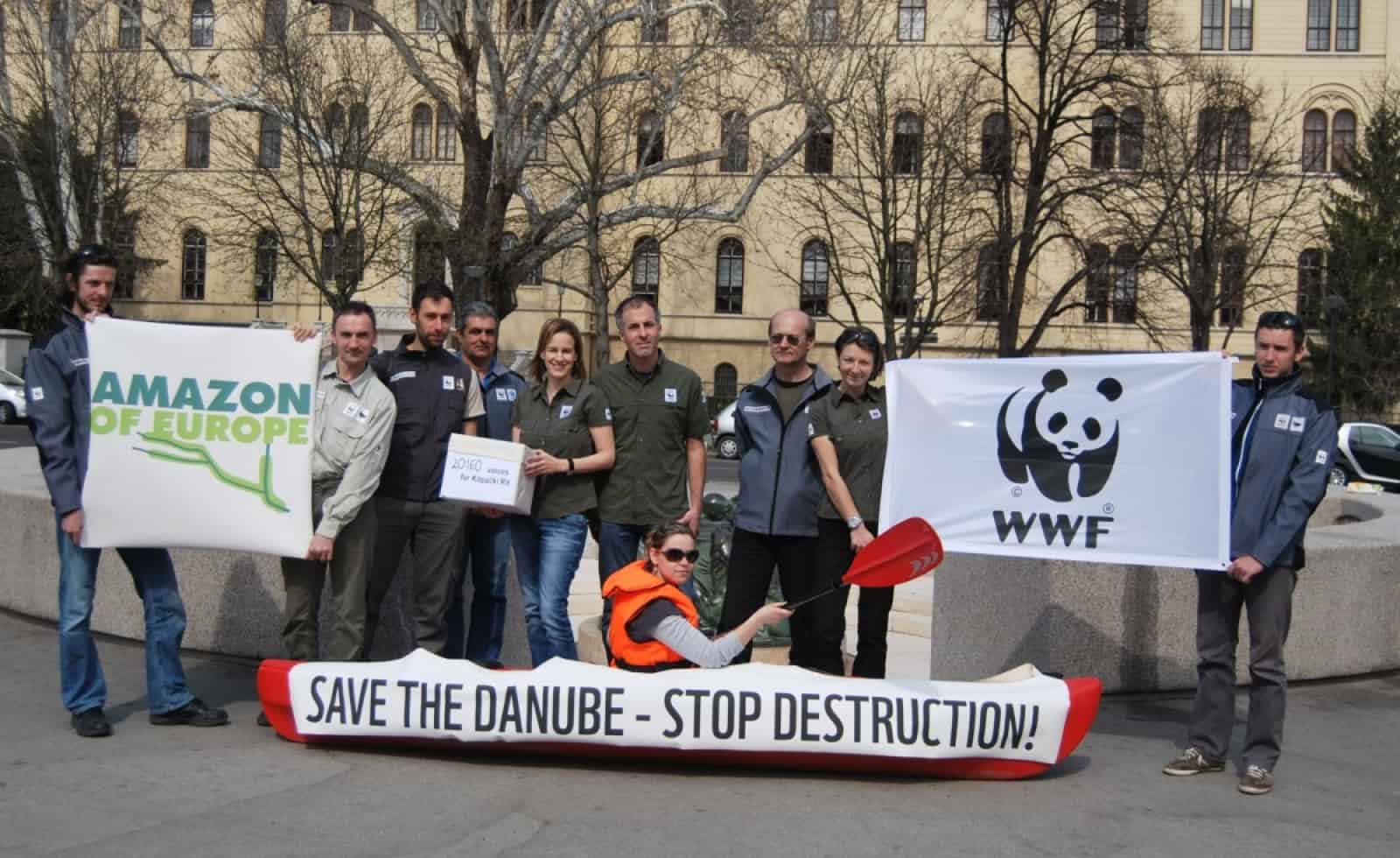
Zagreb, 1. Februar 2012 – Der WWF machte heute mit einer ungewöhnlichen Aktion auf die Bedrohung der kroatischen Flüsse aufmerksam: Sechs Männer in Uniformen mit der Aufschrift "Riverwatch" entrollten ein langes blaues Band auf dem Hauptplatz von Zagreb. Bei den "Riverwatchern" handelt es sich um Freiwillige, Mitglieder von NGOs, die – zu Fuß und in Kanus – Flussabschnitte entlang der Donau, Drau und Mur kontrollieren werden. Im Zuge ihrer Kontrollgänge wollen sie Kanalisierungsmaßnahmen an, sowie Sand- und Kiesbaggerungen aus den Flüssen aufzeigen. Diese Maßnahmen schädigen die natürlichen Flüsse Kroatiens in ihrer ökologischen Intaktheit. Sie widersprechen sowohl dem EU-Recht als auch internationalen Umweltstandards. Der WWF kündigt an, die von den "Riverwatchern" beobachteten Eingriffe in die Flussökosysteme zu prüfen. So sie gesetzwidrig sind, wird die Naturschutzorganisation die kroatische Regierung und die EU-Kommission davon in Kenntnis setzen.
Weitere Informationen siehe die Presseaussendung in Englischer Sprache:
Riverwatchers to protect the “Amazon of Europe”
Zagreb, Croatia, February 1st, 2012 – A long blue band waved by six men wearing uniforms on Zagreb’s central square today marked the start of WWF’s Riverwatch campaign aimed at halting destruction of Croatia’s unique natural rivers: the Danube, Drava and Mura – Europe’s Amazon. All three rivers are under threat from channelling works as well as from gravel and sand extraction. This poses a severe threat to unique wetlands and to Europe’s largest and best preserved floodplain forests.
The Riverwatchers are volunteers who – on canoe and on foot – will patrol a total of 470 km of the rivers for at least the next two years. Riverwatchers will keep an eye not only on the Croatian stretches of the rivers, but also on Hungarian and Serbian shores as these rivers are natural borders between the three countries.
“If we find something inappropriate we will inform the Croatian government as well as the European Commission who like to know if there are activities going on which are not in line with EU law”, said Tibor Mikuska from partner organization Croatian Society for the Protection of Birds and Nature, coordinator of the Riverwatch campaign.
“For the first time in Croatia and in Eastern Europe, a network of people who care about their rivers is taking action”, said Arno Mohl, WWF International Freshwater Expert. “To protect successfully our rivers from destruction, it is key to monitor the situation on the ground regularly and to take action when necessary”, Mohl said.
Devastating actions taken by the water authorities in Croatia as well as in Hungary and Serbia severely harm the three natural rivers and their inhabitants. The area is home to the highest density in Europe of breeding pairs of White-tailed eagle and endangered species such as the Little tern, Black stork and Ship sturgeon. It is also an important stepping stone for more than 250,000 migratory waterfowls every year. The survival of these vulnerable species depends on preserving intact the “Amazon of Europe”.
In December 2011 Croatia signed the EU Accession treaty to become an EU member in 2013. This obliges Croatia to comply with EU law and to protect its unique natural rivers. In September 2011, the Danube, Drava and Mura riverine area was nominated to become part of a 5-country Transboundary UNESCO Biosphere Reserve together with Austria, Hungary, Serbia and Slovenia.
The Riverwatch campaign is being implemented in partnership with a wide range of local NGOs.
Contact:
Olga Apostolova, Regional Communications Officer, WWF Danube Carpathian Programme,
Tel. +359 885 727 862, E-Mail: oapostolova@wwfdcp.bg
Claudia Mohl, Press Officer WWF Austria, Tel. +43 1 488 17-250, E-Mail: claudia.mohl@wwf.at
Rückfragen
News
Aktuelle Beiträge
20 Jahre WWF Earth Hour: Weltweit gehen am 28. März die Lichter aus
Bundespräsident Alexander Van der Bellen ruft gemeinsam mit WWF-Geschäftsführerin Andrea Johanides zur Teilnahme an der globalen Klima- und Naturschutz-Aktion auf
WWF-Klimaschutz-Monitor: Schlechte Klimapolitik wird zum Milliardenrisiko
Analyse nach erstem Jahr der Dreier-Koalition zeigt große Defizite – Bundesregierung verspielt Erreichen der Klimaziele und erzeugt Milliardenrisiken für Budget – WWF fordert Kurskorrektur
Bundesregierung: Erstes Bodenschutz-Zeugnis zeigt große Defizite
WWF-Bodenschutz-Monitor 2026 veröffentlicht: Ein Jahr nach Regierungsstart prägen Stillstand und Rückschritte die Bodenpolitik – Widmungsabgabe als positive Ausnahme
Video: Animation zeigt Klimarisiken im Kaunertal
Eine ZDF-Animation zeigt, was passieren könnte, wenn ein Felssturz den Gepatsch-Stausee trifft.
Notruf vom Nordpol: WWF warnt vor zunehmenden Gefahren für die arktische Tierwelt
Eisbären, Walrosse und Ringelrobben leiden unter Klimakrise und Öl-Industrie – WWF fordert konsequenten Ausstieg aus fossiler Energie und wirksam geschützte Rückzugsräume
Good News: Seltene Gorilla-Zwillinge im Virunga-Nationalpark geboren
Seltene Neuigkeiten aus dem Virunga-Nationalpark: Gorillaweibchen Mafuko hat Zwillinge bekommen!
„Achtung Gefahr“: WWF protestiert mit 20-Meter-Banner gegen Kaunertal-Ausbau
Massive Gefahren für Bevölkerung und Natur weiterhin ungeklärt – UVP-Unterlagen „skandalös unvollständig“ – WWF macht mit Riesen-Banner auf Sicherheitsrisiken aufmerksam
Nach Massen-Fischsterben: WWF fordert Wasser-Rettungspaket für Untere Lobau
Naturschutzorganisation: Langjähriger Wassermangel wirkt sich in niederschlagsarmen und kälteren Wintern besonders fatal für Fische aus – Stadt Wien sollte rasch mit Gegenmaßnahmen starten

